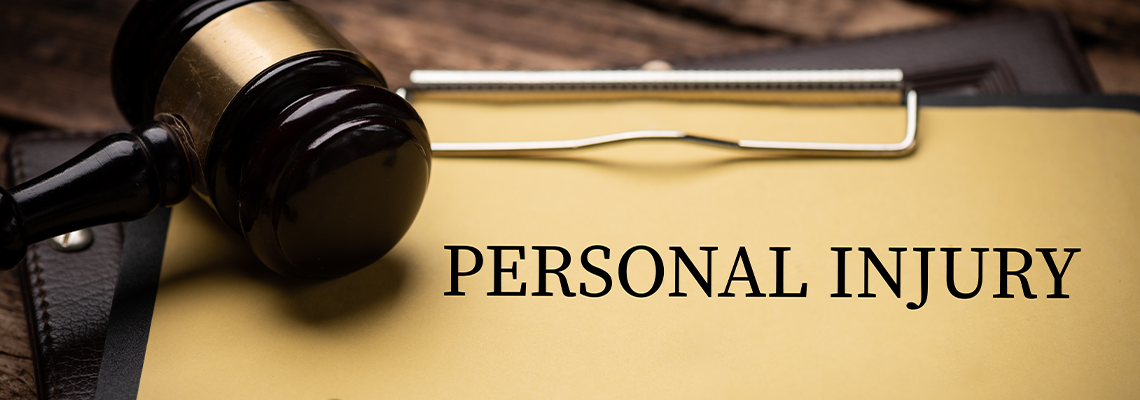
Personal injury law in Texas is designed to provide compensation for individuals who have suffered harm due to the negligence or wrongful conduct of others. Working through personal injury claims can be challenging and overwhelming, especially if you're unfamiliar with the legal process. Here's a detailed guide addressing frequently asked questions (FAQs) about personal injury law in Texas, so you can feel more confident managing these legal procedures.
1. What Is Personal Injury Law?
Personal injury law encompasses legal disputes arising when one party is harmed due to another party's negligence or intentional wrongdoing. This area of law allows injured parties to seek compensation for damages, including medical expenses, lost wages, pain and suffering, and other losses.
In Texas, personal injury cases are typically governed by tort law, which focuses on civil wrongs and compensating victims for their losses. Common types of personal injury claims include car accidents, slip and falls, medical malpractice, and product liability.
2. What Types of Personal Injury Cases Are Common in Texas?
Car Accidents: These are among the most frequent personal injury claims in Texas. They often involve negligence, such as speeding or distracted driving, and can result in significant physical and financial damages.
Slip and Fall Accidents: These occur when someone is injured on another person’s property due to unsafe conditions, such as wet floors or uneven surfaces.
Medical Malpractice: Claims arise when a healthcare professional’s negligence leads to injury or harm to a patient. This can include misdiagnosis, surgical errors, or medication mistakes.
Product Liability: These cases involve injuries caused by defective or dangerous products. Manufacturers, distributors, and retailers can be held responsible for harm caused by their products.
Workplace Accidents: Employees injured while performing job-related tasks may have claims under Texas workers’ compensation laws or personal injury laws if third-party negligence is involved.
3. How Do I Know If I Have a Personal Injury Case?
To determine if you have a personal injury case, consider the following factors:
Negligence: Was there a breach of duty? In personal injury cases, negligence typically involves proving that the at-fault party failed to act as a reasonable person would under similar circumstances.
Causation: Did the breach of duty directly cause your injuries? You need to demonstrate that the defendant’s actions or omissions led to the harm you suffered.
Damages: Have you incurred damages due to the injury? This includes medical expenses, lost wages, and pain and suffering.
Consulting with a personal injury attorney can help assess the viability of your case based on these factors.
4. What Should I Do Immediately After an Accident?
After an accident, taking the following steps can help protect your rights and strengthen your case:
Seek Medical Attention: Make sure that you receive medical care for any injuries, even if they seem minor. Documentation of your injuries is crucial for your case.
Report the Incident: Notify relevant authorities or property owners about the accident. For car accidents, file a police report.
Document the Scene: Gather evidence by taking photographs of the scene, damages, and injuries. Collect contact information from witnesses.
Preserve Evidence: Keep records of medical treatments, expenses, and any communication related to the accident.
Avoid Admitting Fault: Be cautious about making statements that could be interpreted as accepting responsibility for the accident.
5. How Long Do I Have to File a Personal Injury Claim in Texas?
In Texas, the statute of limitations for personal injury claims is generally two years from the date of the injury. This means you must file a lawsuit within this timeframe to seek compensation. However, there are exceptions that may affect this period, such as cases involving minors or certain types of claims. Consulting with a personal injury attorney can provide clarity on the applicable deadlines for your case.
6. What Damages Can I Recover in a Personal Injury Case?
In a personal injury case, you may be entitled to various types of damages, including:
Economic Damages: These cover tangible financial losses such as medical bills, lost wages, and property damage.
Non-Economic Damages: These compensate for intangible losses, including pain and suffering, emotional distress, and loss of enjoyment of life.
Punitive Damages: In cases of gross negligence or intentional misconduct, punitive damages may be awarded to punish the defendant and deter similar behavior. However, these are not commonly awarded in every case.
7. What Is Comparative Negligence?
Texas follows a modified comparative negligence rule, meaning that if you're partially at fault for the accident, your compensation may be reduced in proportion to your degree of fault. For example, if you're found to be 20% at fault, you'll only recover 80% of the damages awarded.
If your degree of fault is 51% or more, you're barred from recovering damages. Understanding how comparative negligence applies to your case is crucial for determining potential compensation.
8. Will My Personal Injury Case Go to Trial?
Not all personal injury cases go to trial. Many cases are resolved through settlements, where the parties agree on compensation without court involvement. However, if a fair settlement can't be reached, your case may proceed to trial. Your personal injury attorney will guide you through the litigation process and represent your interests in court.
9. What Role Does Insurance Play in Personal Injury Cases?
Insurance plays a significant role in personal injury cases, as it often provides the primary source of compensation. Depending on the type of accident, different insurance policies may come into play, such as auto insurance, homeowner’s insurance, or medical malpractice insurance. Your personal injury attorney will work with insurance companies to negotiate a fair settlement and make sure that all potential sources of compensation are explored.
10. How Long Will My Personal Injury Case Take?
The duration of a personal injury case can vary widely based on several factors, including the difficulty of the case, the extent of the injuries, and the willingness of the parties to settle. Cases that proceed to trial may take several months to years to resolve, while settlements can often be reached more quickly. Your personal injury attorney will provide an estimated timeline based on the specifics of your case.
11. Can I Sue for Emotional Distress?
Yes, you can sue for emotional distress as part of a personal injury claim. Emotional distress damages compensate for psychological suffering caused by the accident, such as anxiety, depression, or loss of enjoyment of life. These damages are typically classified as non-economic damages and can be more challenging to quantify than economic damages.
12. What Should I Do If the Insurance Company Makes a Low Settlement Offer?
If the insurance company offers a settlement that's lower than what you believe is fair, you can negotiate for a higher amount. It’s important to consult with your personal injury attorney before accepting any offers. Your personal injury attorney can help evaluate the offer, negotiate on your behalf, and advise you on whether to accept or reject it.
Contact a Personal Injury Attorney
Personal injury law in Texas is a multifaceted area that requires careful consideration of legal principles, procedures, and individual circumstances. Understanding the frequently asked questions about personal injury can help you traverse the legal process more effectively and make informed decisions about your case. Consulting with an experienced personal injury attorney can provide valuable guidance and support throughout the process, guaranteeing that your rights are protected and that you receive the compensation you deserve.
If you're looking for an honest, hardworking personal injury attorney in Conroe, Huntsville, Livingston, or the Woodlands, TX, look no further than Bloodworth Law Firm, P.L.L.C. Reach out to schedule a consultation today.


